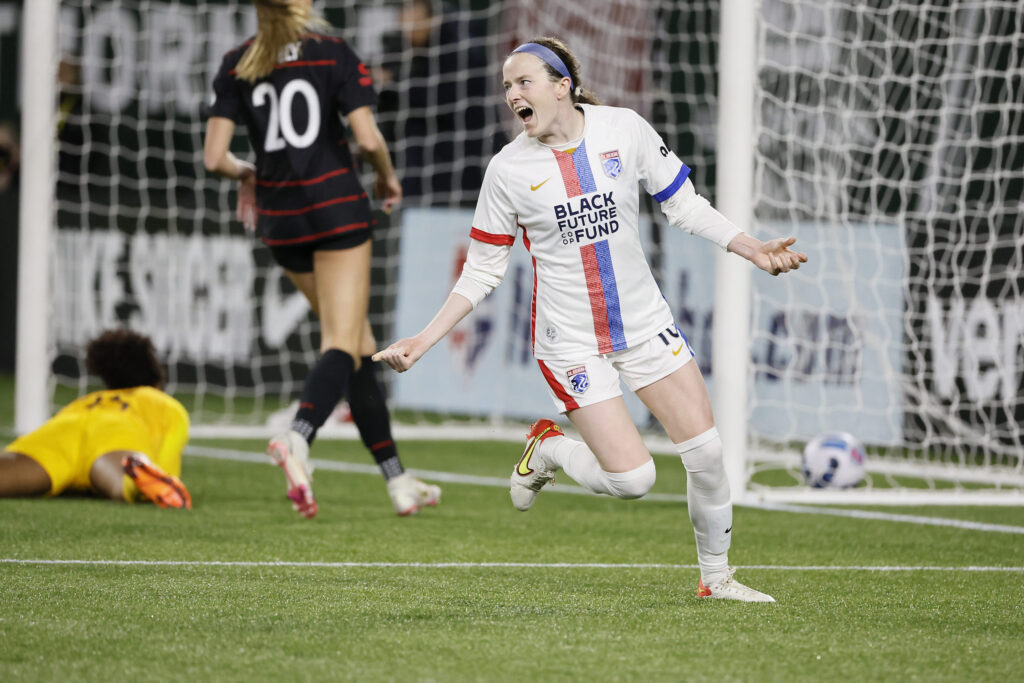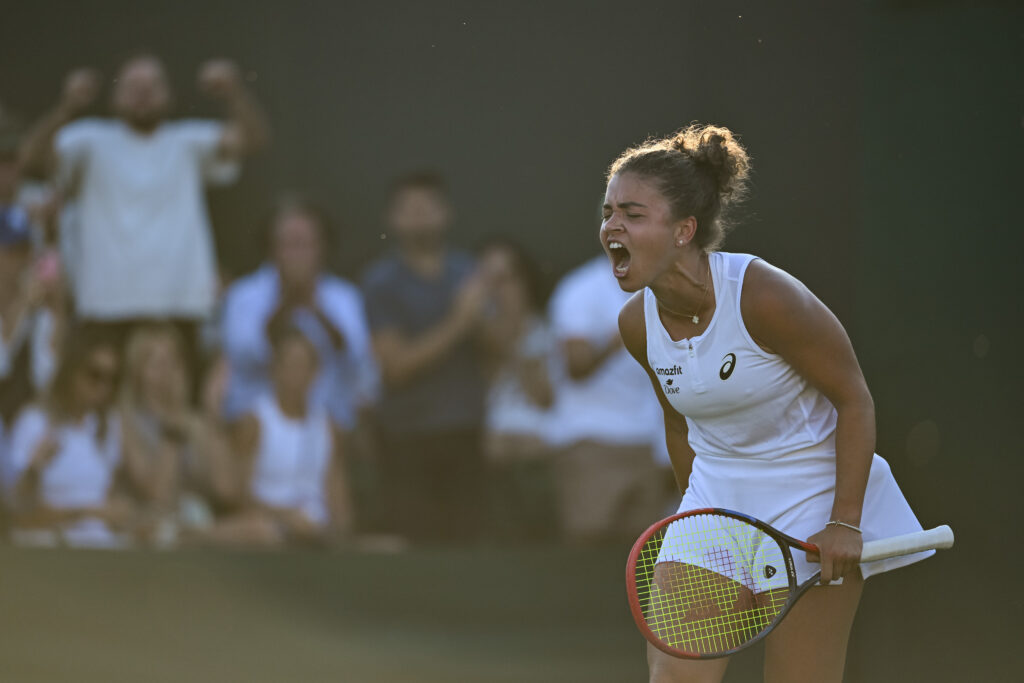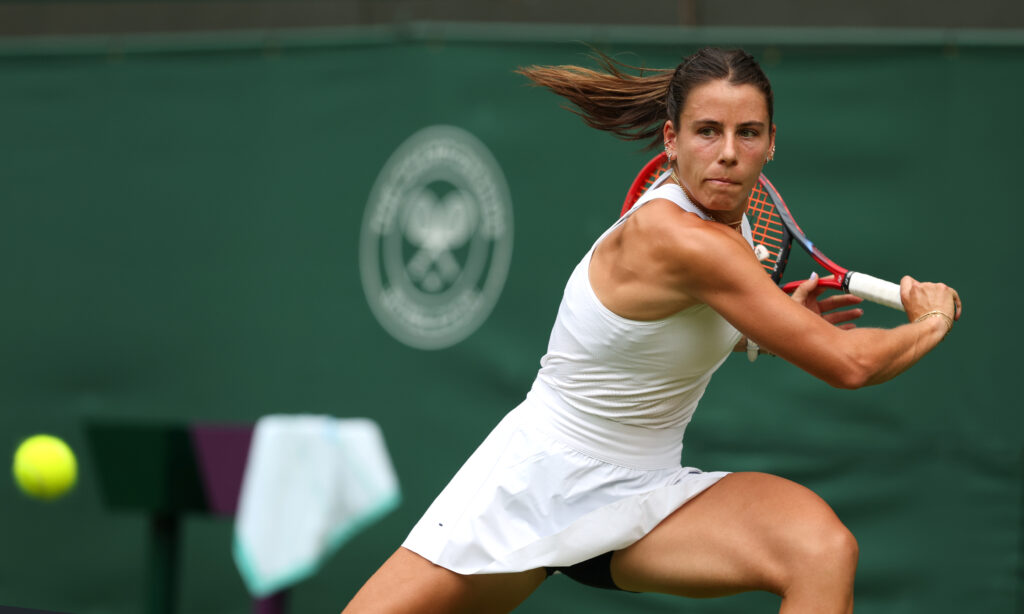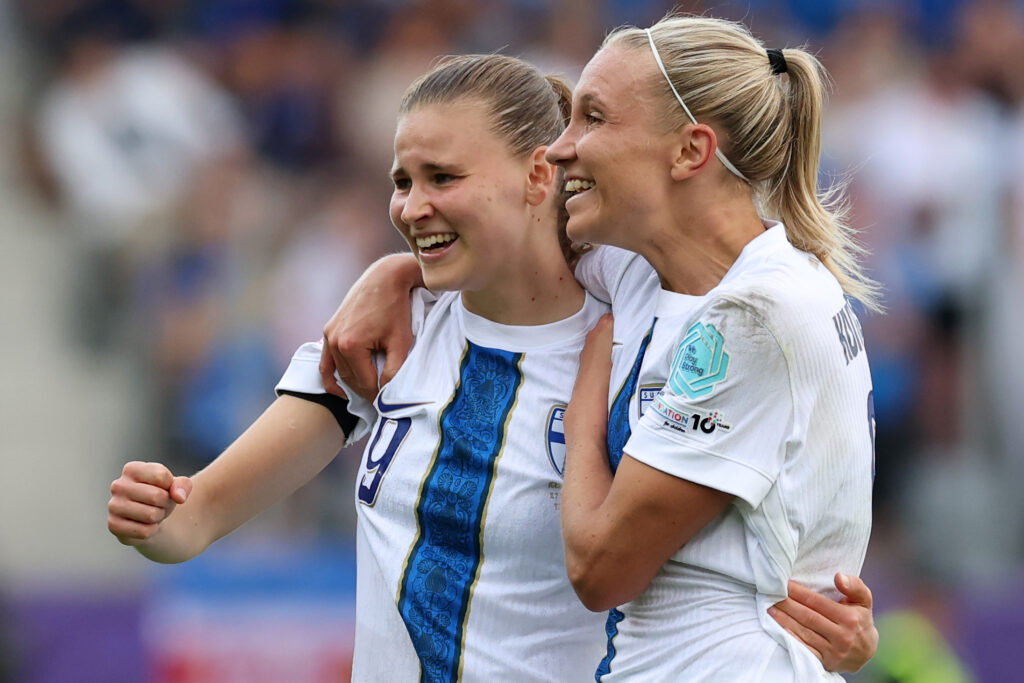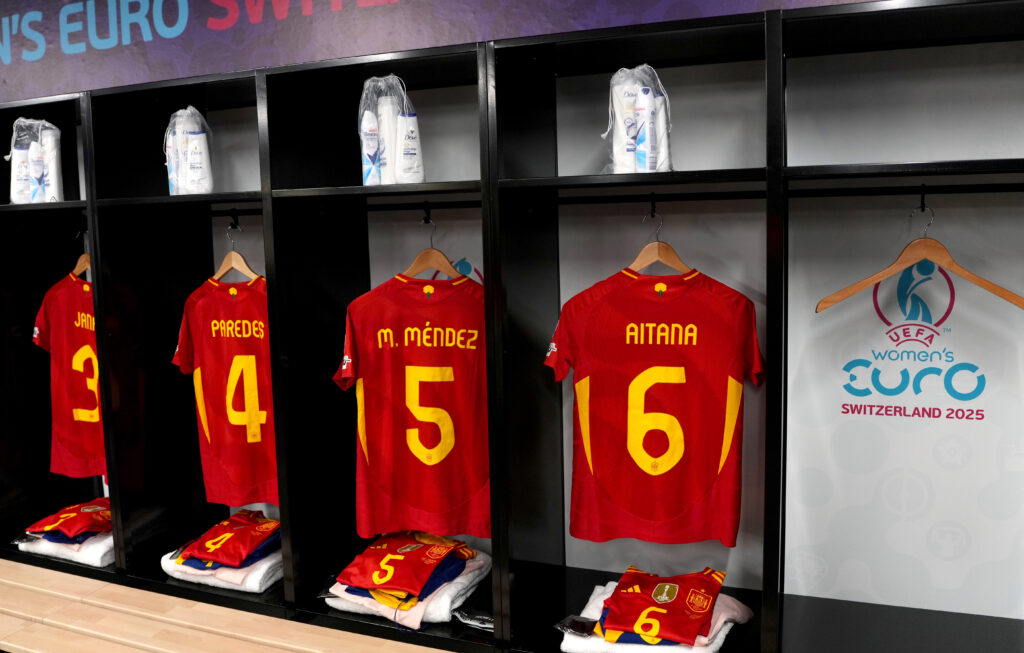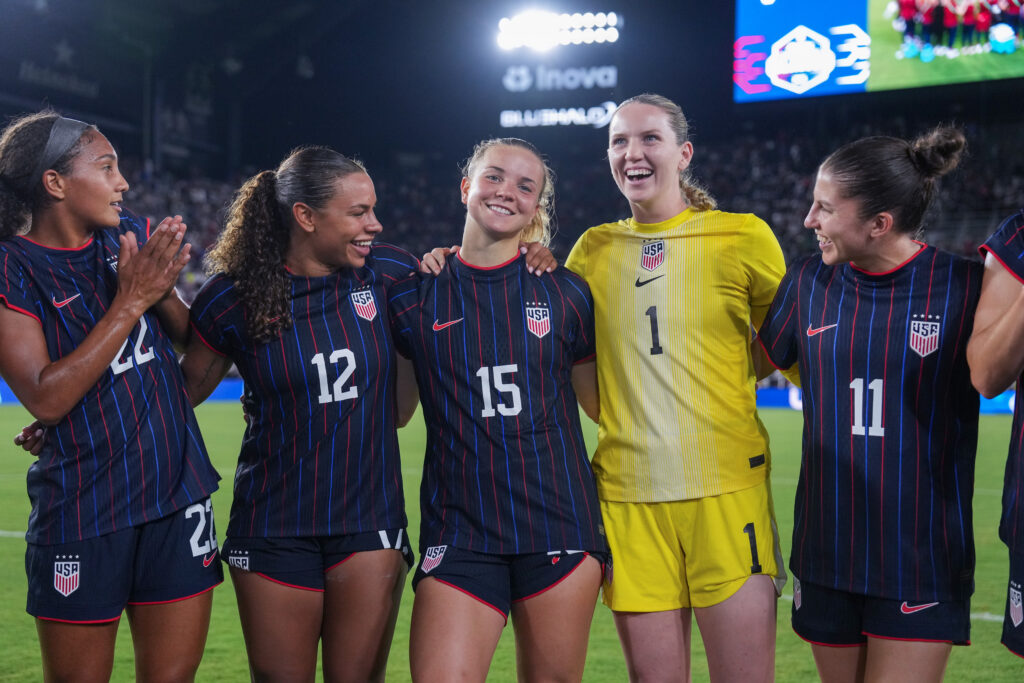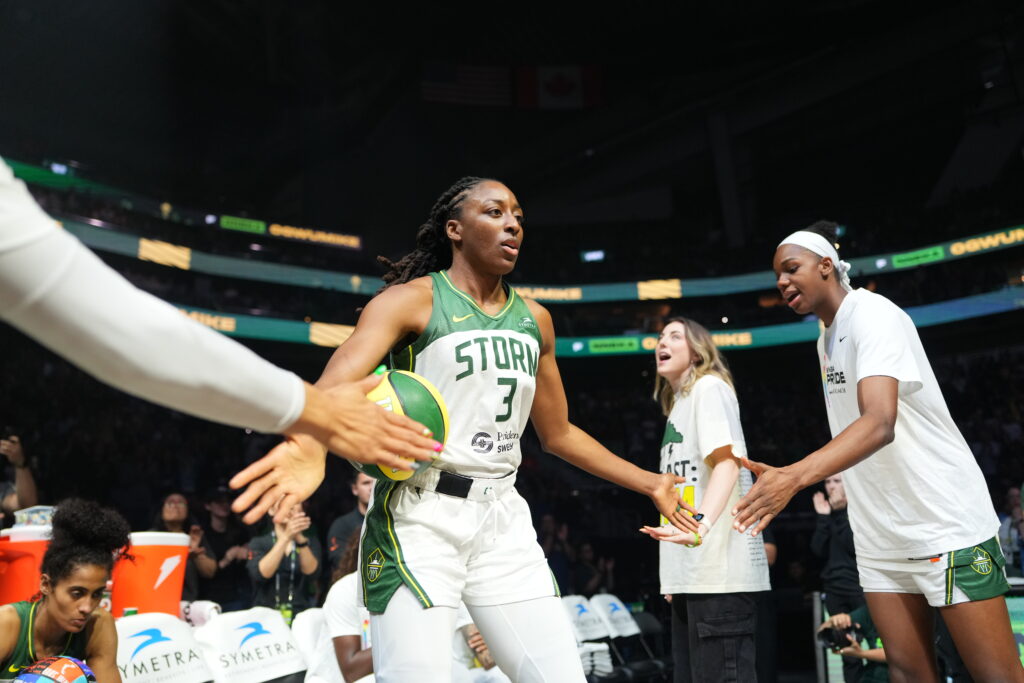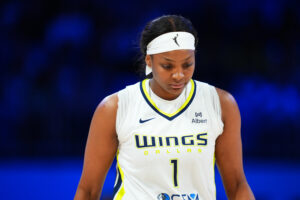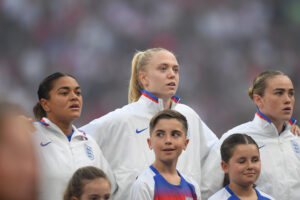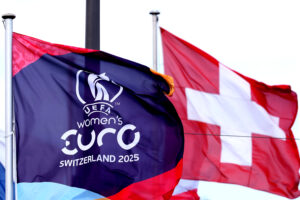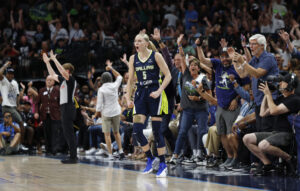The group stage of the 2022 NWSL Challenge Cup has come and gone, with a few teams meeting or even exceeding expectations, leaving behind a field with quite a few things to address in their limited time before the regular season starts on April 29.
The soccer on the pitch has continued to improve every week, as squads get to know each other better after an offseason of immense turnover. So, let’s take a look in the grade book at what went well, what needs to get better and what we can expect in the future for each team.
West Division
OL Reign (4-0-2) — A
OL Reign came into the Challenge Cup with high expectations, and by all measures have met them. The team finished unbeaten in six games, with a league-leading plus-6 goal differential, and 10 different players found the back of the net in the group stage. They were just as good on the road as they were at Lumen Field, which should serve them well as they travel to Leesburg, V.A. for a semifinal matchup with the Washington Spirit they are technically hosting.
As the Reign continue to tinker with their strongest starting XI, they haven’t yet hit their ceiling, which bodes well for the regular season. They could use the depth after waning on short rest in recent games, needing a stoppage time winner to get past Angel City and settling for a draw in San Diego.
Portland Thorns FC (3-2-1) — B+
Consider this grade on a bit of a curve: Arguably one of the five best teams in the league, the Thorns suffered for having OL Reign in their Challenge Cup division. They’ve tested their depth throughout the group stage, and at times have appeared to find answers for the holes in their midfield, even if Lindsey Horan and Crystal Dunn are ultimately irreplaceable.
After a COVID-19 outbreak left Sophia Smith and others out of their final lineup, the Thorns concluded the Challenge Cup on a down note. Once they start to control the tempo of games by slowing things down, they’re built to earn points under their new manager.
San Diego Wave FC (1-3-2) — B-
There are two ways to grade the California expansion teams: against other established clubs, and against their own expectations. The Wave’s lone Challenge Cup win came against fellow expansion side Angel City, but San Diego showed flashes of potential throughout the group stage.
Their attack is as stacked as advertised, with Alex Morgan in good form, Taylor Kornieck taking steps forward and rookie Amirah Ali getting off to a strong start. The Wave’s defense hasn’t been perfect, but goalkeeper Kailen Sheridan makes up for a lot of mistakes, and the backline has also had to deal with extra pressure due to a lack of control in the middle of the pitch. Naomi Girma has held her own regardless, and if she can get some help in front of her, the Wave could become difficult to break down. Their issues, as expected, lie in the midfield. Find solutions there, and the Wave quickly become a very competitive team.
Angel City FC (1-4-1) — B-
Fitting for Hollywood, Angel City had a clear narrative arc to their preseason. After building a roster for a very specific defensive system, the club then lost two starting defenders before the group stage even began. Other lingering absences meant that fans got only a glimpse of the intended starting XI in the Challenge Cup.
As ACFC adjusted and rotated in their depth options, they suffered a few rough results early on. But they turned the lessons from those losses into a winning performance against the Thorns in their group stage finale, and the frontline of Christen Press, Jun Endo and Simone Charley — with Savannah McCaskill behind them — looks like a real winner. If Angel City can get healthy, they’re going to win some games behind their starting XI in the regular season.

Central Division
Kansas City Current (4-1-1) — A
Kansas City’s success in the Central Division should be celebrated as a massive turnaround, but those who have been watching closely had a sense the Current had these results in them. Perhaps more impressively, the Current found ways to win without two of their biggest offseason signings in Lynn Williams and Sam Mewis. They’re building a high-press system that can hurt teams on the counter-attack, and they’re winning games as a unit.
Rookie Elyse Bennett looks beyond ready for the professional level, Kristen Hamilton is comfortable leading the frontline, and the defense has held firm so that the results have matched the performances. They did have one very poor game down in Louisville, indicating that they haven’t perfected the system just yet, but it’s a style of play that will win them games.
Chicago Red Stars (2-2-2) — B
Chicago debuted a brand new three-back formation in the Challenge Cup group stage, deploying a midfield-flooding tactical philosophy with many players who did not get many minutes in 2021. That the Red Stars were in the running for the knockout stage until their final game is a testament to the new system, but they’ve also been hampered by starters’ absences, some of which are long term.
The biggest remaining questions for Chicago are who will carry the attack when Mallory Pugh isn’t available, and whether the midfield can turn numerical advantages into possession and control games. The Red Stars are capable of becoming a possession-based team, which is the complete opposite of how they lined up in 2021, but now they have to consistently turn that into points.
Racing Louisville FC (1-2-3) — B-
Racing Louisville has shown their youth and rawness at times during the group stage, which isn’t quite so dire since they are both of those things in the club’s second season. Their attack has been relatively efficient, finishing the Challenge Cup with a shots-to-shots on goal ratio that was tighter than a number of other teams. Jessica McDonald has been a welcome addition to the attack, and the continued development of second-year outside back Emily Fox and rookie midfielder Jaelin Howell into franchise cornerstones will pay dividends down the road.
Louisville doesn’t have the same talent ceiling that other flashy teams do, and they managed only one win for their efforts. But with three draws in the Challenge Cup, they showed they are able to get results when they are either outplaying their opponent or being outplayed. The next step has to be establishing a more defined style of play, while not letting themselves become a solvable puzzle.
Houston Dash (2-4-0) — B-
What differentiates Houston from the rest of the pack is the roller-coaster effect: In some stretches, they look as competitive as anyone, but in others, they get completely dominated. Recent addition Maria Sánchez is a bright spot for the club, but their defense needs work on all three lines. Their obvious gaps on the pitch have been exploitable too often (Mal Pugh alone scored four goals on the Dash in the group stage).
Since winning the 2020 Challenge Cup, the Dash have struggled with consistency, which is key to regular season success. The Dash can still do damage on the wings, but they need to bring that same intensity when the tide turns against them. They also have another level of uncertainty to overcome after head coach James Clarkson was suspended Tuesday based on initial findings in the NWSL and NWSLPA’s joint investigation.
East Division
North Carolina Courage (3-0-3) — A+
No one counted the Courage out entirely after a tumultuous offseason, but I’m not sure we anticipated just how aggressive the new-look team would be this early in the year. The Courage started a number of players on the frontline with wing experience who have handled the goal-scoring well. They’ve also found ways to maintain the high-transition attack based on waves of pressure and quick-trigger counter-attacking soccer that has served the team so well in the past.
Debinha looks as good as ever, and new additions Brianna Pinto and Kerolin Nicoli give the Courage options in the center of the pitch. They had a tendency for sloppy distribution from the goalkeeping position and the backline, but goalkeeper Casey Murphy will help settle those channels when she returns as the starter.
Washington Spirit (2-0-4) — A-
The Spirit kept their unbeaten streak alive through the Challenge Cup group stage, salvaging a few results with furious comebacks after falling behind early. They still have the core group from their 2021 championship run, but they’ve had to be strategic with which players to rest — Andi Sullivan, for example, didn’t play the team’s final two group stage matches. Trinity Rodman and Ashley Sanchez both look like they’ve taken steps forward, and the sight of Bailey Feist and Jordan Baggett points to depth the team might not have even had in 2021.
The Spirit have gotten off to slow starts, frequently having to overcome an adverse scoreline or a player advantage to earn points. They’ll want to figure out how to bring the intensity from the opening whistle as the year goes on.
NJ/NY Gotham FC (1-2-3) — B
There is no doubt Gotham has all the pieces to be a good team, but in a tough division in the Challenge Cup, they showed how much of a learning curve they still have. The team had individual moments of excellence, like Ifeoma Onumonu’s equalizer in the second game against North Carolina and Margaret Purce’s late winner over Orlando in the third game. But they’ve also conceded four goals on set pieces, indicating that the defense is still meshing with new keeper Ashlyn Harris, and the midfield doesn’t appear completely balanced, even with the addition of Kristie Mewis.
Gotham has so much going for them: dynamic strikers, veteran leaders and one of the best off-field presences in the game. In the regular season, they’ll look to take the next step as a unit on the field.
Orlando Pride (0-4-2) — C+
The Pride are the only NWSL team that have yet to win a game in 2022, but what pushes them into a passing grade are their injury circumstances and their future prospects. Orlando leaned into a full rebuild in the offseason, compounded by Marta’s season-ending ACL tear and Sydney Leroux’s lingering Achilles issue. Because of that, this Challenge Cup was more about the process than the results, and the Pride have still made gains from early-year frustration.
A low-block team defensively, Orlando has gotten better at bending but not breaking. Their final match, a 1-1 draw against Gotham, showed a team unafraid of getting stuck in, allowing them to disrupt long enough to earn a result. First-year Pride forward Darian Jenkins has been very active in her minutes, and she’ll surely be excited to see Leroux’s name back in the 18.
Claire Watkins is a contributing writer at Just Women’s Sports covering soccer and the NWSL. Follow her on Twitter @ScoutRipley.
